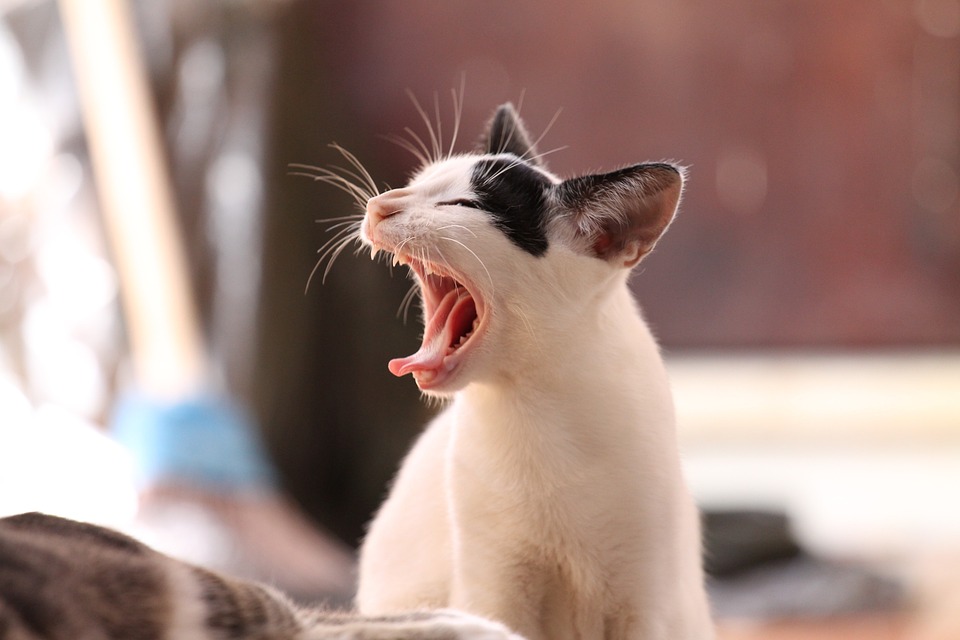Cats are known for their meticulous grooming habits, spending countless hours cleaning their fur and ensuring they stay clean and healthy. However, some cats may extend this behavior to grooming their human companions, which can be an endearing but occasionally overwhelming experience. In this article, we will explore why cats groom humans excessively, how to cope with this behavior, and provide some useful tips to maintain a harmonious relationship with your furry friend.
Cats groom humans for various reasons, and understanding the underlying causes can help you manage this behavior effectively. Here are a few possible reasons why your cat may engage in excessive grooming:
1. Affection and Bonding: Grooming is a social behavior in cats that helps build and strengthen the bond between them and their human. By grooming you, your cat may be displaying their love and affection towards you.
2. Mimicking Motherly Behavior: Kittens learn grooming from their mothers, and some adult cats may exhibit motherly behavior towards their human companions. Grooming you may be a way of showing their nurturing instincts.
3. Seeking Attention: Cats are intelligent creatures, and they quickly learn that grooming humans often leads to attention and interaction. Your cat may engage in excessive grooming as a means to get your attention or seek affection.
4. Anxiety or Stress: Excessive grooming can also be a sign of anxiety or stress in cats. Cats may resort to grooming as a self-soothing mechanism to cope with their emotional distress.
Excessive grooming by cats can become overwhelming and even uncomfortable for humans. Here are some strategies to help you cope with this behavior:
1. Redirect the Behavior: Provide your cat with alternative outlets for their grooming instincts. Offer them interactive toys, puzzle feeders, or scratching posts to redirect their focus and energy away from grooming you.
2. Increase Playtime: Engaging your cat in regular play sessions can help burn off excess energy and reduce their need to groom excessively. Use interactive toys, laser pointers, or feather wands to keep your cat entertained and mentally stimulated.
3. Use Positive Reinforcement: Reinforce positive behaviors by rewarding your cat with treats and praises when they engage in appropriate grooming behaviors, such as grooming themselves or grooming their own toys. This can help redirect their attention and reinforce desired habits.
4. Provide Enrichment: Ensure your cat has a stimulating environment with plenty of toys, scratching posts, and hiding spots. Environmental enrichment can help alleviate stress and reduce excessive grooming tendencies.
5. Consult a Veterinarian: If excessive grooming persists despite your efforts, it is advisable to consult a veterinarian. They can rule out any underlying medical conditions that may be causing or exacerbating the behavior.
To address common concerns, here are some frequently asked questions about excessive grooming:
Q1: Is excessive grooming harmful to cats?
Excessive grooming can potentially lead to skin irritation, hair loss, and the formation of hairballs in cats. It is essential to monitor your cat’s grooming habits and seek veterinary advice if any concerning symptoms arise.
Q2: Can excessive grooming be a sign of a medical issue?
Yes, excessive grooming can sometimes be a symptom of an underlying medical issue, such as allergies, dermatitis, or parasites. If you notice any changes in your cat’s grooming behavior, consult a veterinarian for a proper diagnosis.
Q3: Can I discourage my cat from grooming me altogether?
While it may be challenging to completely discourage your cat from grooming you, you can redirect their behavior towards appropriate outlets, such as grooming their toys or themselves. Consistency, positive reinforcement, and providing alternative options can help modify their grooming habits.
Q4: Are there any calming products or remedies that can help reduce excessive grooming?
Calming pheromone sprays, diffusers, or collars may help reduce anxiety-related excessive grooming. Consult with your veterinarian to determine if these products are suitable for your cat’s specific situation.
Q5: Is excessive grooming a sign of over-attachment or separation anxiety?
Excessive grooming can be a sign of separation anxiety in cats. If your cat becomes overly attached and exhibits signs of distress when separated from you, consult with a veterinarian or a certified animal behaviorist for guidance on managing separation anxiety.
Understanding why cats groom humans excessively is crucial in finding appropriate coping mechanisms. By redirecting their grooming behavior, providing enrichment, and seeking professional advice when needed, you can maintain a healthy and harmonious relationship with your feline companion. Remember, a little understanding and patience can go a long way in managing this peculiar yet endearing cat behavior.








